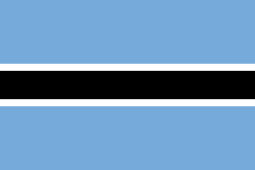The Republic of Botswana
Background
Botswana is considered to be one of the few stable democracies in Africa. Botswana’s respect for human rights and level of democracy is commendable by most standards. But the current President, Seretse Khama, is accused of consolidating power, by making a number of Government bodies like the Directorate on Corruption and Economic Crime under his office. Freedom House has also reported the President sometimes protects his cronies from being investigated and prosecuted for charges of corruption. This inclination to shield allies from facing justice may have the potential to invoke reluctance on the part of the Government to be subjected to a regional court, such as the African Court, with jurisdiction over corruption and money laundering.
Treaty ratification Process
Botswana does not have constitutional or other legislative provisions governing treaty making and ratification. However, given the President’s power to act as the country’s top representative in the international arena, as both the head of state and head of government, treaty making is vested in the Presidency and other state organs given full power to conclude treaties. But treaties would not have effect of law unless they are transformed through an act of Parliament. That treaties need to be translated into national law means Botswana is a dualist state.
State of legislation on International and transnational crimes
Botswana has yet to criminalize most international crimes. The crime of genocide, crimes against humanity, the crime of aggression and some war crimes are not defined under national law. Only war crimes are partially incorporated at the domestic level, giving national courts the power to try the grave breaches of the 1949 Geneva Conventions. After becoming a State Party to the Rome Statute in 2000, Parliament has yet to pass the draft Rome Statute of the International Criminal Court Bill laid before it since 2014. The domestic legal framework, however, contains most of the transnational crimes. Trafficking in humans, trafficking in drugs, money laundering, piracy, and terrorism, are completely or almost completely similar to the definitions of the same crimes in international human rights instruments. The definitions of acts of corruption, war crimes, unconstitutional change of government, and crime of aggression, are partially incorporated domestically when compared with their counterparts in international human rights instruments. Genocide, crimes against humanity, mercenerism, illicit exploitation of natural resources, and trafficking in hazardous wastes are crimes not yet defined under Botswanan national law. Trafficking in persons is the most challenging crime in the country, from the crimes listed above.
Human Rights treaty signing and ratification trends
Botswana has ratified most of the UN human rights and crime-related conventions (average time of ratification 58 month),[1] while it has yet to do the same for most AU treaties with similar subject matters. Acknowledging the country has a commendable trend of signing and ratifying treaties on the same day or soon after, its tendency not to ratify regional instruments is nevertheless at the same time a point of concern. Based on our calculations, Botswana takes 58 months on average to ratify UN treaties, while the average time is 49 months for AU agreements.
AU Judicial bodies membership
[1] See Annex – treaty signing and ratification trends calculation chart: Botswana.

